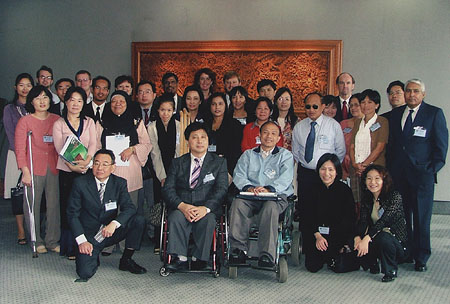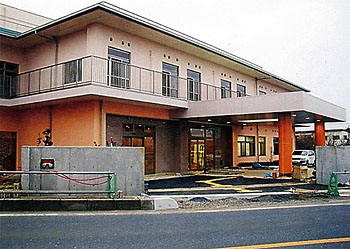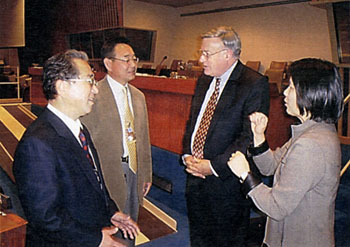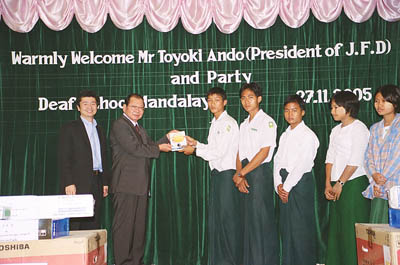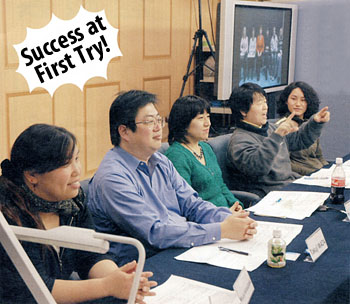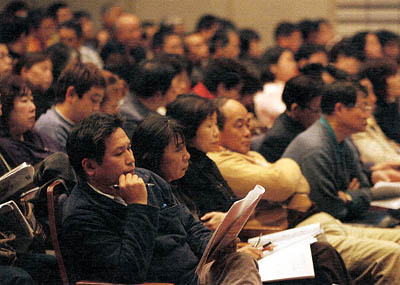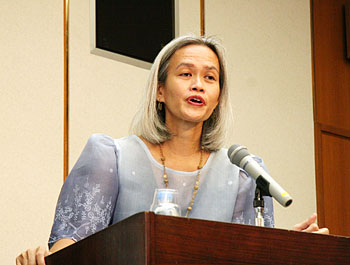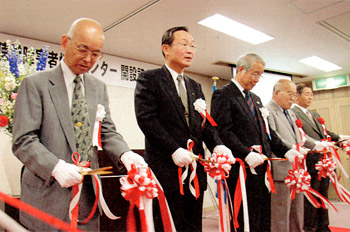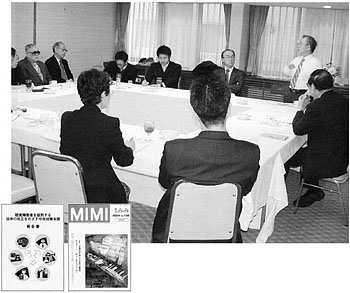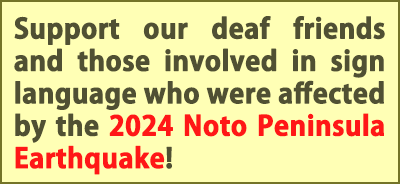from 1 May 2006 Issue of Japanese Deaf News, JFD’s monthly newspaper:
New Students Begin Freshman Year With High Hopes and Dreams
First Enrollment Ceremony since Its Start as a 4-Year University
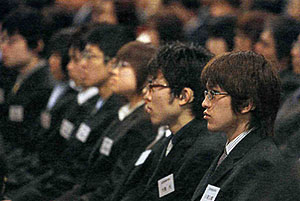
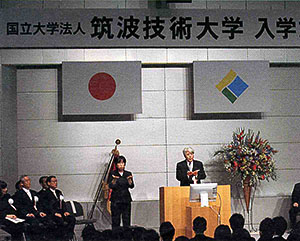
The Tsukuba University of Technology (NTUT), the first educational institution in the world providing higher education to students with visual and hearing disabilities, held its first Enrollment Ceremony to welcome new freshman-year students since its rebirth as a 4-year university. (Report and photos by Akitoshi Mochida)
On April 7, 2006, the National University Corporation, Tsukuba University of Technology held its Enrollment (Matriculation) Ceremony at the Tsukuba International Conference Center. The Faculty of Industrial Technology, where the Deaf students study, is divided into 2 departments: the Department of Industrial Information (accepting 35 freshmen this year) and the Department of Synthetic Design (accepting 15 new students).
The University’s education is aimed to provide specialized technology to enable students with visual and hearing impairments to lead independent and self-supportive lives and to become leaders who contribute to society.
